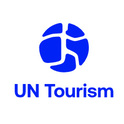UNWTO at COP27: Uniting Tourism Around Tangible Climate Action Plans
The tourism sector has set out its plans to achieve its climate action ambitions. At COP27, UNWTO brought leading sector stakeholders together to share practical insights into accelerating the shift to greater sustainability and reaching Net-Zero.
Since the launch Glasgow Declaration on Climate Action in Tourism at COP26, more than 700 businesses, destinations, civil society groups and even countries have signed up, committing to decarbonize, regenerate and measure in order to halve their carbon emissions by 2030 and reach Net-Zero by 2050 at the latest.
UNWTO Executive Director Zoritsa Urosevic said: “One year after its launch, we are proud to see the way the Glasgow Declaration has inspired our sector into action. Unlocking finance and developing measurement frameworks will be critical to scaling-up our support and continue accelerating climate action for resilience.”
Unlocking finance and developing measurement frameworks will be critical to scaling-up our support and continue accelerating climate action for resilience
Ovais Sarmad, Deputy Executive Secretary, UNFCCC, added: “The Declaration, provides a framework for all tourism stakeholders to raise their climate ambitions. Further integrating tourism into the Nationally Determined Contributions will be key to mobilizing the support needed to scale-up the efforts.”
“A net zero future for tourism largely depends on the ocean and the regeneration of destinations, notably coastal destinations. We have to turn tourism into a sector that is responsive to the climate emergency” said Peter Thomson, UN Secretary General’s Special Envoy for the Ocean
Whole-of-sector commitment
Participants represented the different dimensions of tourism, at both the national and subnational level. Financial and UN institutions, in particular United Nations Development Programme (UNDP), the World Bank Group and CAF (the Development Bank of Latin America) voiced their readiness to support tourism destinations in their transformation towards more low-carbon, sustainable and resilient tourism models.
On 10th November, the side event focussed on the pathways of measurement and decarbonization. The Secretaries of State for Tourism and for Environment of Guanajuato, Mexico, shared about their unique collaborative approaches; the Minister of Tourism of the Canary Islands presented their climate action plan – one of the first ones at destination level; Iberostar released its decarbonization roadmap; the Sustainable Hospitality Alliance reflected on the improvements of the Hotel Carbon Measurement Initiative; and Intrepid Travel put forward the multiplier role that tour operators can have by supporting smaller businesses to decarbonize.
“The tourism sector requires a reset. A transition to sustainable tourism models requires a collective effort, one that UNDP is ready and willing to support,” said Assistant Secretary General and Regional Director for UNDP Arab States, Dr Khalida Bouzar.
Financing the green transition
On 11th, the event focused on regeneration and finance. The Minister of Tourism of the Maldives and representatives from The Bahamas Ministry for Tourism reiterated the place of tourism in the protection of fragile ecosystems. At the same time, the challenges faced by Ministries of Tourism to play an active role in climate negotiations at the national level was highlighted, as was the need to enhance the education of communities and visitors. The Foundation for Environmental Education also stressed the importance of integrating the Glasgow Declaration pathways as criteria in certification systems such as Green Key. NOAH Regen presented an innovative approach to protect and regenerate blue carbon ecosystems through blended finance. The Latin American Bank for Development (CAF) voiced its support for climate action in tourism.
“Achieving Net Zero by 2050 remains ambitious for tourism and more finance is needed. Investing in climate action in tourism is investing in green resilient and inclusive development” said Mari Pangestu, Managing Director, Development Policy and Partnerships, World Bank Group
Committee of Tourism and Sustainability
Also in Sharm El-Sheikh, UNWTO convened its Committee of Tourism and Sustainability, chaired by the Ministry of Tourism of Croatia, for the first time within the framework of a UNFCCC COP. This allowed Member States to discuss the guidance materials available, such as the Baseline Report on Climate Action in Tourism and the Technical Brief on Measuring Tourism GHG Emissions, as well as opportunities for collaboration within the framework of the One Planet Sustainable Tourism Programme where UNWTO works closely with UNEP and the governments of France and Spain as co-leads. .
Glasgow Declaration welcomes more signatories
The latest signatories to the Glasgow Declaration include the Ministry of Tourism of Indonesia, the Tourism Authority of Monaco and the Secretariat of State for Tourism of Honduras. National Tourism Authorities from Panama, Kiribati, Micronesia, Portugal are also among our signatories. Committing to the Declaration are also large actors in the sector such as Accor, Iberostar, Booking.com, Expedia, The Travel Corporation, as well as Radisson Hotel Group, together tour operators and accommodation businesses from 130 countries. UNEP called on stakeholders to continue adhering to the Glasgow Declaration on Climate Action in Tourism which is implemented within the framework of the One Planet Sustainable Tourism Programme.
RELATED LINKS
- Technical Session on the Baseline Report on Climate Action in Tourism
- Glasgow Declaration: Events and Webinars
- Glasgow Declaration: Sign-up Page
- COP26: Launch of Glasgow Declaration
About UN Tourism
The World Tourism Organization (UN Tourism), a United Nations specialised agency, is the leading international organisation with the decisive and central role in promoting the development of responsible, sustainable and universally accessible tourism. It serves as a global forum for tourism policy issues and a practical source of tourism know-how. Its membership includes 166 countries, 6 territories, 2 permanent observers and over 500 Affiliate Members from the private sector.
Media enquires: [email protected]
